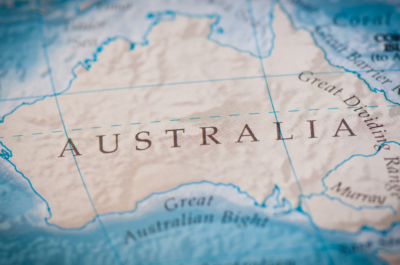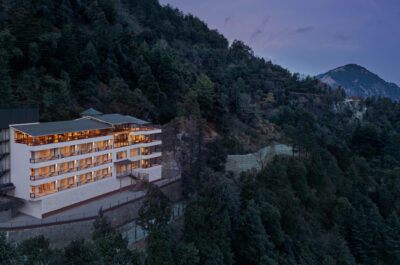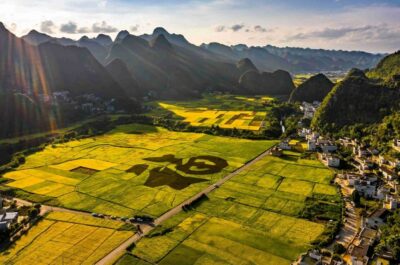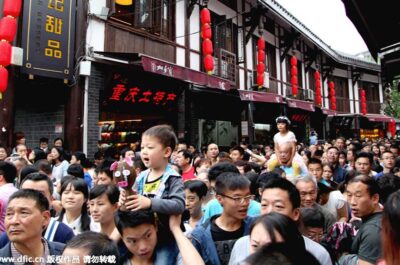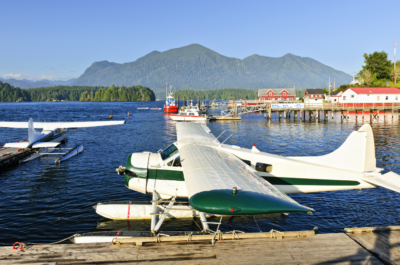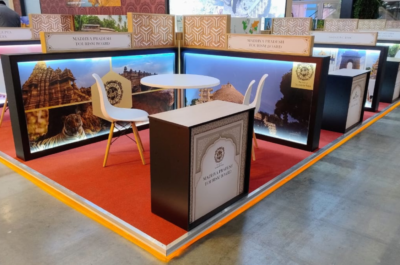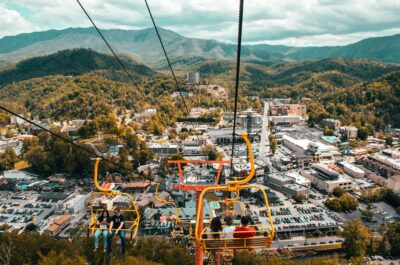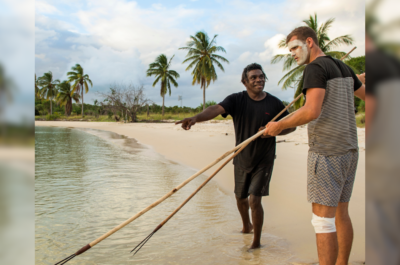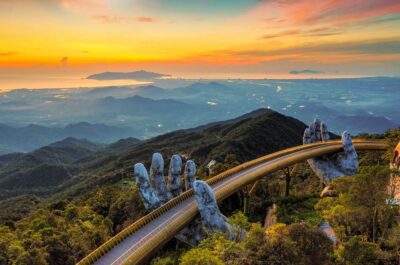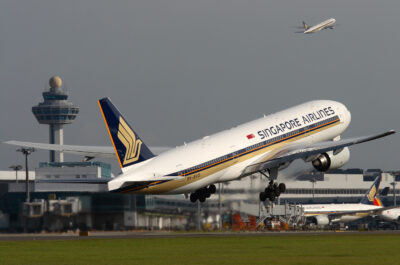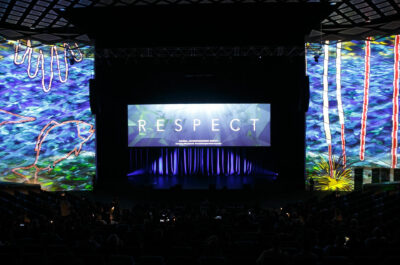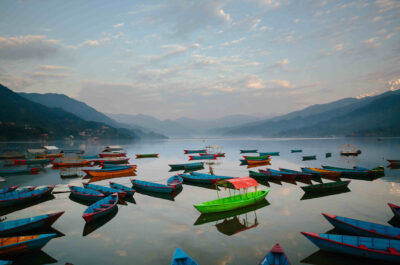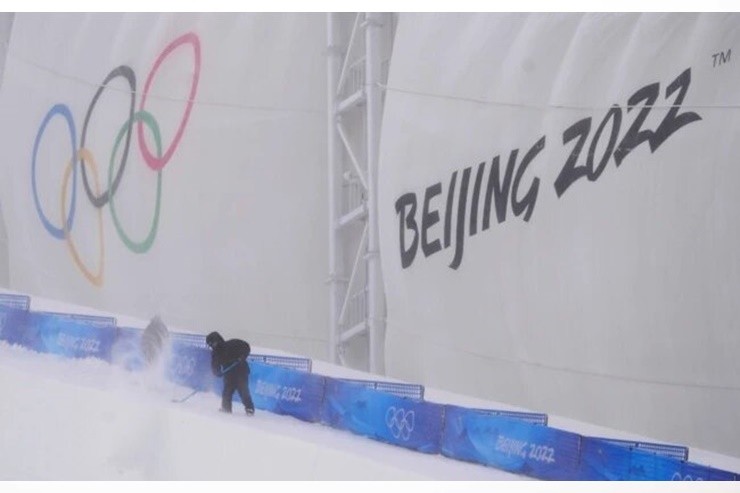
It will be the first Winter Olympics to use almost 100% artificial snow, with more than 100 snow generators and 300 snow-cannons working to cover the slopes.
LONDON — The future of the Winter Olympics is under threat because of climate change, according to a new report from Britain’s Loughborough University.
The warning comes as Beijing prepares for the opening of the 2022 Games this week, the first time a city has hosted both the summer and winter events. It also will be the first Winter Olympics to use almost 100% artificial snow, with more than 100 snow generators and 300 snow-cannons working to cover the slopes.
Artificial snow
Zhangjiakou, which lies 200 kilometers northwest of Beijing, will host freestyle skiing and snowboarding, cross-country skiing and ski jumping. Despite the bitter cold – temperatures reached minus 17 degrees Celsius this week – it rarely snows.
Olympic site manager Jacques Fournier is in charge of the snow machines. “Here has no humidity, and it’s very dry, and there’s a lot of wind,” Fournier told Reuters. “So, in that kind of condition, the goal and the target is really to make the snow compact, and to prepare rapidly to not let it [be blown away] by the wind.”
Inherent dangers
Winter resorts have increasingly turned to artificial snow to make up for a lack of natural snowfall. However, a new report from Britain’s Loughborough University warns that athletes’ safety could be at risk.
“In sports like biathlon or cross-country skiing or any of the freestyle events where an athlete is flinging themself into the air flipping around and falling, you would want the surface to be a little softer. And the problem with artificial snow is that it’s about 70% ice, compared to natural snow which is about 30% ice. And so, the surface is much, much harder,” said report co-author Madeleine Orr, a sports ecologist at Loughborough University, in an interview with VOA.
Snow-melt
American snowboarder Taylor Gold is preparing for Beijing. During his first Winter Olympics, in the Russian resort of Sochi in 2014, he recalls the halfpipe melting.
“They were spraying some chemicals on it to try to get it to stay in shape. But if you go back and watch that event, it’s clear, it was really warm. It was not ideal for snowboarding,” Gold recently told Associated Press. “It makes me sad that we need so much man-made snow to sustain winter sports,” he added.
American downhill skier Lindsey Vonn, who won three Olympic golds until her retirement in 2019, has trained and competed all over the world. She says snow is becoming harder to track down. “You go to South America, where we use to train every summer, August, September. They’ve had no snow for several years in a row, like none,” Vonn told the Associated Press.
Unsuitable climates
Critics say the climates of both Sochi and Beijing are unsuitable to host the Winter Olympics. But even high altitude, mountain ski resorts that have traditionally hosted the games are at risk because of climate change.
“The northeast of the U.S. for example, and eastern Canada – we are losing significant amounts of snow there,” says Orr. “And then in places like the Rockies and the [European] Alps, we just don’t have quite as much as we used to. So, the challenge moving forward is going to be where can we put these events. And with the Winter Olympics, we’re already kind of there.”
Environmental damage
Orr says artificial snow also causes environmental damage.
“When you put artificial snow in a place that doesn’t have any natural snow at all, like Beijing, you’re putting a whole lot of water into a place where that soil and those plants are not expecting it. And previous research has shown that that can be damaging to local wildlife.”
“But we also expect that when you’re creating that much snow, the energy usage is extraordinary. The amount of water is extraordinary. In this Olympics we’re expecting 49 million gallons [185 million liters] of water to be used – and that’s if things go well. So, if they have a few hot days and need to create a little bit of extra snow to make up and compensate for some melt during the games, we could see that number rise above 50 million gallons [189 million liters],” Orr told VOA.
Carbon-neutral Olympics
The Chinese organizers insist the games will be carbon neutral. All venues are expected to be powered by renewable energy. Ice rinks will use natural CO2 technology for cooling, instead of ozone-damaging hydrofluorocarbons. The organizers say the latest snow machines use 20% less water.
Some athletes prefer artificial snow. “The snow is actually amazing, the man-made stuff. I think because of how cold it is, you have to be really aggressive with how you ride, but you just have to adapt,” said Zoi Sadowski-Synnott, a downhill snowboarder competing for New Zealand at the Beijing Games.
Olympic organizers also will have to adapt. The Loughborough University report warns that by 2050, fewer than half of the resorts that have hosted the Winter Olympics until now will have viable snowfall.
Vicky is the co-founder of TravelDailyNews Media Network where she is the Editor-in Chief. She is also responsible for the daily operation and the financial policy. She holds a Bachelor's degree in Tourism Business Administration from the Technical University of Athens and a Master in Business Administration (MBA) from the University of Wales. She has many years of both academic and industrial experience within the travel industry. She has written/edited numerous articles in various tourism magazines.



